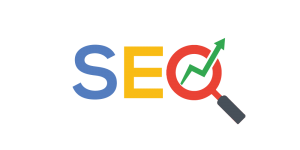
INTRODUCTION
What is SEO and what is it all about?
SEO stands for Search Engine Optimization, which is the practice of increasing the quantity and quality of traffic to your website through organic search engine results.
What goes into SEO?
To understand the true meaning of SEO, let us break that definition down and look at the parts:
- Quality of traffic: You can attract all the visitors in the world, but if they're coming to your site because Google tells them you're a resource for Apple computers when really you're a farmer selling apples, that is not quality traffic. Instead you want to attract visitors who are genuinely interested in products that you offer.
- Quantity of traffic: Once you have the right people clicking through from those search engine results pages (SERPs), more traffic is better.
- Organic results: Ads make up a significant portion of many SERPs. Organic traffic is any traffic that you do not have to pay for.
HOW SEO WORKS
You might think of a search engine as a website you visit to type (or speak) a question into a box and Google, Yahoo!, Bing, or whatever search engine you’re using magically replies with a long list of links to webpages that could potentially answer your question.
That is true. But have you ever stopped to consider what is behind those magical lists of links?
Here is how it works: Google (or any search engine you are using) has a crawler that goes out and gathers information about all the content they can find on the Internet. The crawlers bring all those 1s and 0s back to the search engine to build an index. That index is then fed through an algorithm that tries to match all that data with your query.
KEYWORDS / KEYPHRASES
Before we can help your business grow through search engine optimization, we first must understand who you are, who your customers are, and your business goals.
This is where corners are often cut. Too many people bypass this crucial planning step because keyword research takes time, and why spend the time when you already know what you want to rank for?
The answer is that what you want to rank for and what your audience wants are often two wildly different things. Focusing on your audience and then using keyword data to hone those insights will make for much more successful campaigns than focusing on arbitrary keywords.
PACKAGES
Personal
- 1 Keyword
- Web Traffic Management
- Web Content Management
- Reporting
- Dedicated 24/7 Support
- Analytics
Small Business
- Up To 5 Keywords
- Web Traffic Management
- Web Content Management
- Reporting
- Dedicated 24/7 Support
- Analytics
Medium Business
- Up To 10 Keywords
- Web Traffic Management
- Web Content Management
- Reporting
- Dedicated 24/7 Support
- Analytics
National
- Up To 15 Keywords
- Web Traffic Management
- Web Content Management
- Reporting
- Dedicated 24/7 Support
- Analytics
Global
- Up To 40 Keywords
- Web Traffic Management
- Web Content Management
- Reporting
- Dedicated 24/7 Support
- Analytics